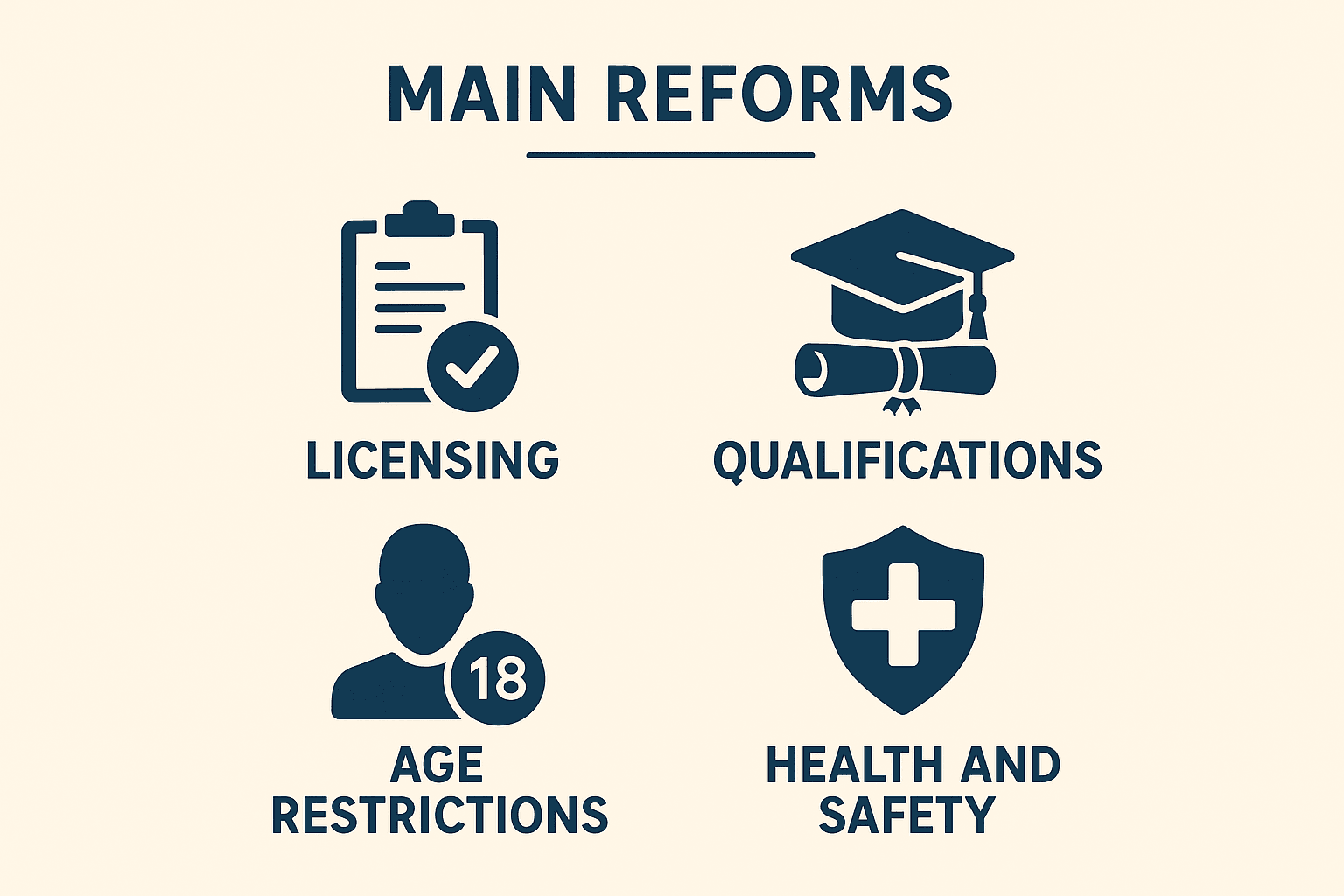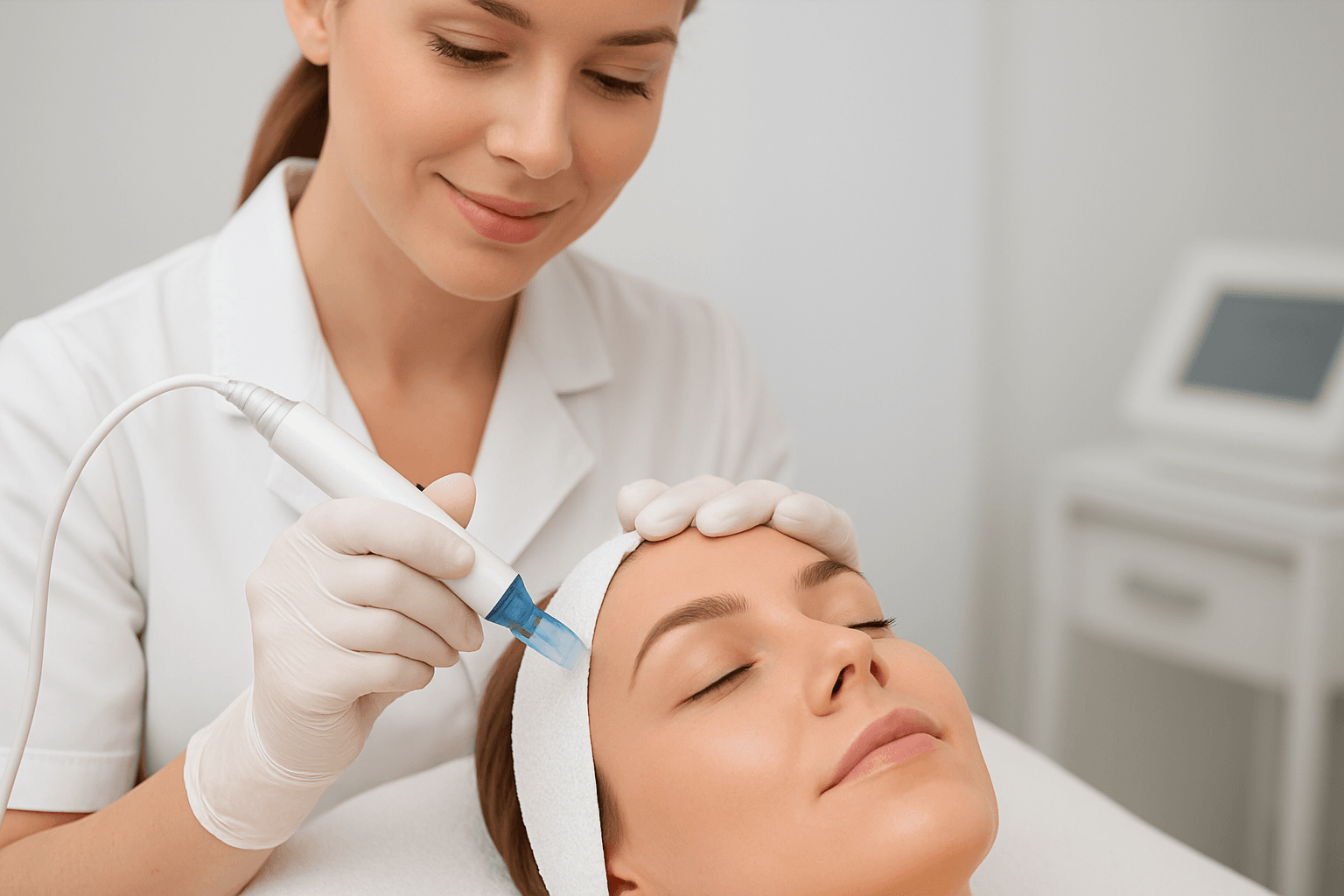
UK Aesthetics Regulations: What’s Changing and Why It Matters
The UK beauty industry is undergoing one of its most significant shifts. With new beautician law changes, salon owners, aesthetic practitioners, and cosmetic professionals must prepare for a stricter framework to raise safety and professional standards.

Why the Rules Are Changing
Demand for non-surgical cosmetic procedures has surged, bringing safety concerns and complications. The UK Government’s licensing framework aims to protect patients, set national standards, and restore trust in the aesthetics sector.
Key Takeaways of the New Regulations
- Mandatory licensing for high-risk treatments.
- Formal qualifications and training required for practitioners.
- Strict health and safety rules for salons and clinics.
- Age restrictions for under-18s on fillers.
- Strong recommendation for aesthetics insurance.

Licensing and Training Requirements
Only licensed practitioners can perform procedures like fillers, laser treatments, microneedling, and chemical peels. Practitioners must complete Ofqual-recognised courses covering anatomy, infection control, and safe practice standards.
Consultation, Consent, and Client Safety
Practitioners must provide detailed consultations, explain risks, and obtain signed consent. This aligns the UK with global safety best practices and reassures clients of high standards.

Health, Safety, and Insurance
- Hygiene and infection control standards matching healthcare facilities.
- Safe disposal of clinical waste and medicines.
- Accurate record-keeping for every procedure.
- Insurance coverage for complications, claims, and regulatory action.
Legal Risks of Non-Compliance
Non-compliance could lead to fines, licence suspension, or even criminal prosecution. Following the Care Act law and licensing rules is essential for protecting clients and business longevity.
FAQs
- Who needs a licence? Anyone performing high-risk aesthetic procedures like fillers, or hair restoration.
- Are healthcare professionals exempt? No, they must still apply for licences and follow all safety standards.
- Is insurance mandatory? It’s strongly recommended and often required to maintain a licence.
- What if I don’t comply? You risk penalties, closure, or criminal charges for unsafe practices.
Need Expert Legal Guidance?
Contact us today for help navigating UK aesthetics law, applying for licences, or ensuring compliance. Call 0330 3414757 or use our online enquiry form.
Are You Looking for
Experienced Attorneys?
Get a free initial consultation right now
